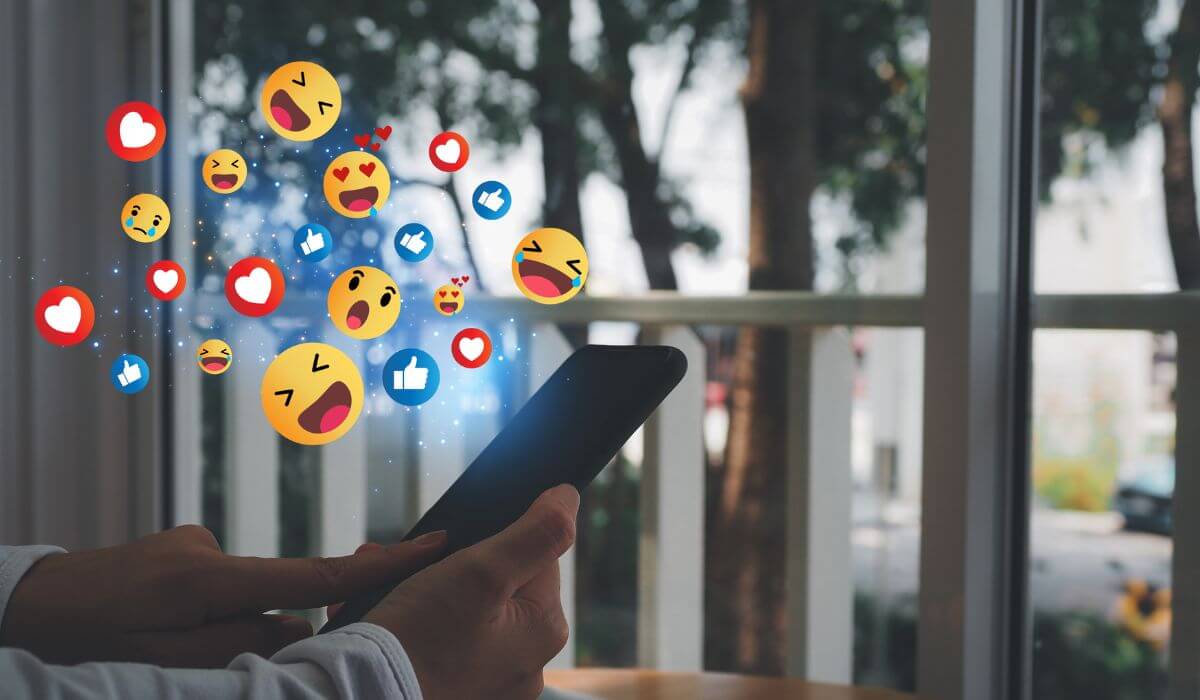Navigating the Mental Health and Social Media Impact on Your Well-being
In today’s digital age, social media has become an integral part of our lives, shaping the way we connect and share information. While it has undoubtedly brought us closer together, there is a growing concern about Mental Health and Social Media Impact on well-being. Intensive scrolling and constant comparison can take a toll on our mental health, leading to anxiety, depression, and feelings of inadequacy.
This dilemma presents a crucial question: How can we navigate the impact of social media on our well-being? At Natural Healthist, we understand the importance of finding a balance between staying connected and safeguarding our mental health. In this article, we delve into the complex relationship between social media and mental well-being, exploring the various ways it can influence our emotions and self-perception.
We also provide practical tips and strategies to help you maintain a positive digital experience. Join us as we examine the impact of social media on mental health and discover how you can protect your well-being in an increasingly connected world. Let’s empower ourselves to use social media in a way that enhances, rather than undermines, our mental health.
Understanding the Role of Social Media in Mental Health Issues
Social media, with its ability to connect people globally, has become an integral part of our lives. From sharing life updates to finding communities with shared interests, the platforms offer a plethora of experiences. However, it’s crucial to understand that the constant exposure to curated content and the pressures of maintaining a certain online persona can contribute to mental health issues.
The perpetual comparison to others, commonly termed “social media envy,” can lead to feelings of inadequacy and negatively impact self-esteem. As an individual navigating these digital landscapes, recognizing that social media is a tool, not a measurement of self-worth, becomes paramount. Understanding the potential triggers and pitfalls is the first step in establishing a healthy relationship with these platforms.
Negative Effects of Social Media on Mental Health
While social media connects us, it can also be a breeding ground for negativity. The curated nature of content often leads to unrealistic comparisons, fostering feelings of inadequacy and anxiety. Studies indicate a correlation between excessive social media use and mental health among young adults.
The constant exposure to idealized images and lifestyles can contribute to a distorted perception of reality. Moreover, the phenomenon of “doom-scrolling,” where individuals continuously consume distressing news or negative content, can significantly impact mental well-being.
The pressure to conform to societal standards, fueled by the relentless stream of images and opinions, can lead to a sense of isolation and the perpetuation of harmful stereotypes.
Positive Effects of Social Media on Mental Health
Contrary to the negative aspects, social media can also be a source of support and positivity. Communities dedicated to mental health awareness and support have flourished online. Individuals share their personal stories, creating a space for empathy and understanding.
Mental health social media posts that promote self-care, self-love, and resilience contribute positively to the digital landscape. Furthermore, social media serves as a platform for mental health awareness month social media ideas, fostering conversations and reducing the stigma surrounding mental health issues.
It provides access to resources, coping mechanisms, and a sense of community, reminding us that, when used intentionally, these platforms can be powerful tools for well-being.
Strategies for Maintaining Mental Well-being While Using Social Media
Balancing the scales between social media use and mental health requires intentional effort. Implementing strategies such as taking a social media break, setting time limits, and curating a positive feed can create a healthier online environment.
Regularly evaluating how certain content makes you feel and unfollowing accounts that trigger negative emotions is an act of self-care. Engaging in real-life connections, both online and offline, and fostering a healthy digital boundary are crucial. Remember, it’s perfectly okay to step back, recalibrate, and prioritize your mental well-being over digital engagement.
Recognizing Signs of Social Media Addiction and How to Overcome It
Recognizing signs of social media addiction is a crucial step in maintaining a healthy balance. If you find yourself compulsively checking your feeds, feeling anxious when unable to access social media, or sacrificing real-life activities for digital engagement, it might be time to reassess your relationship with these platforms.
To overcome social media addiction, consider implementing a digital detox, gradually reducing screen time, and seeking support from friends or professionals. Establishing a healthier relationship with social media involves acknowledging the addictive nature of these platforms and taking conscious steps toward moderation.
Promoting Positive Mental Health Through Social Media
In the digital realm, everyone can play a part in promoting positive mental health. Be mindful of the content you share and consume. Share mental health social media campaigns that contribute positively to collective well-being. Use your platform to foster empathy, share resources, and break the silence surrounding mental health issues.
The impact of a single positive post can ripple through the digital landscape, reminding others that they are not alone in their struggles. By actively contributing to a supportive and understanding online community, we collectively shape a healthier digital environment for everyone.
The Role of Mental Health Influencers on Social Media
In the vast expanse of social media, mental health influencers wield significant influence. These individuals use their platforms to destigmatize mental health issues, share personal experiences, and offer coping strategies.
The transparency of mental health influencers contributes to a more authentic online narrative, encouraging others to open up about their struggles. However, it’s essential to approach mental health content critically. Not all influencers are mental health professionals, and what works for one person may not work for another.
Be discerning in the content you consume, and remember that seeking professional advice is crucial for addressing individual mental health needs.
Seeking Professional Help for Mental Health Issues Related to Social Media
While social media can be a source of support, it’s essential to recognize when professional help is needed. If your mental health is significantly impacted, reaching out to a mental health professional is a crucial step. They can provide tailored strategies, coping mechanisms, and support to address specific challenges. Mental health issues related to social media are valid, and seeking help is a sign of strength.
FAQs About Mental Health and Social Media
Q1: Can social media impact mental health?
A. Yes, social media can have both positive and negative effects on mental health. It depends on how individuals use and engage with these platforms.
Q2: How can I maintain a healthy relationship with social media?
A. Setting boundaries, curating a positive feed, and taking breaks are effective strategies. Regularly assessing how social media affects your well-being is also crucial.
Q3: Are mental health influencers reliable sources of information?
A. While many mental health influencers provide valuable insights, it’s essential to approach their content critically. Professional advice should be sought for personalized guidance.
Q4: What are the signs of social media addiction?
A. Compulsive checking, anxiety when unable to access social media, and prioritizing digital engagement over real-life activities are signs of potential social media addiction.
Q5: How can I promote positive mental health on social media?
A. Share uplifting content, participate in mental health campaigns, and foster open conversations. Be a source of support and empathy for your online community.
Q6: When should I seek professional help for mental health issues related to social media?
A. If your mental health is significantly impacted, such as persistent anxiety or depression, seeking help from a mental health professional is crucial for personalized support.
Conclusion and Final Thoughts
In conclusion, the relationship between mental health and social media is complex, with both positive and negative aspects. Navigating this dynamic landscape requires self-awareness, intentional use, and a commitment to prioritizing well-being.
By implementing strategies for a healthier digital presence, recognizing signs of imbalance, and actively contributing to positive online communities, we can create a more mindful and supportive online environment. Remember, your mental health matters, both online and offline.


